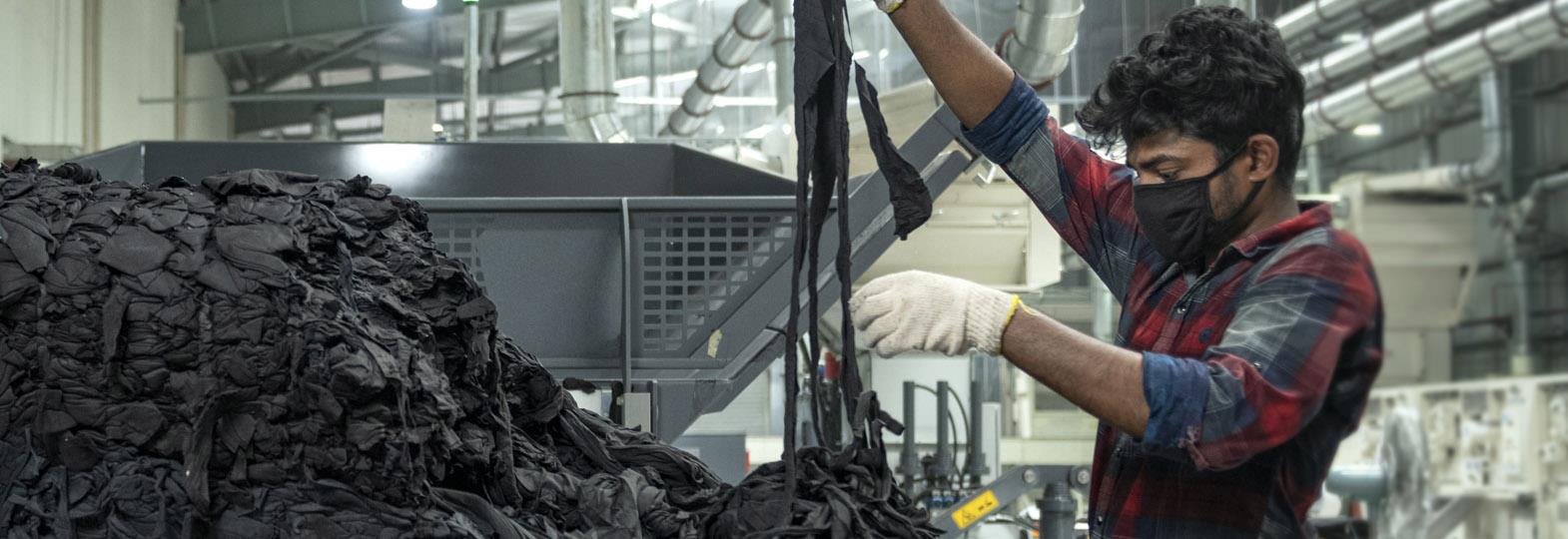The Bangladesh Export Import Company Limited (Beximco) is working with Recover™ to scale the latter’s recycled fibre production through the largest recycling facility setup in Bangladesh. The partnership will also allow Beximco to offer the best quality woven, knit and denim fabrics that are made with recycled fibre, a transparent supply chain, and sustainable fabric production techniques in dyeing and finishing.
Bangladesh is the world’s second-largest apparel exporter of ready-made garments. The number of exports is expected to keep growing thanks to the country’s available infrastructure and its new technology initiatives. As a result, the country is also one of the largest cotton waste producing regions. Bangladesh produced approximately 577,000 tons of waste from its readymade garments factories and fabrics mills in 2019, according to an estimate from Circular Fashion Partnership (CFP). Of this, 250,000 tons was 100 per cent pure cotton waste.
Bangladesh is also heavily reliant on imports of textile fibre, bringing in 1.63 million tons of staple cotton fibre in 2019 worth $3.5 billion.
The sustainable approach
Beximco is one of the global leaders in sustainable fashion manufacturing, and it puts sustainability and circularity at the heart of its operations. The company has laid out a direct approach to solve the growing quantity of waste through its 3 Ps: Planet, People and Profit.
Some of its sustainable practices include using advanced manufacturing and supply chain management solutions, digitalised design proposals to reduce waste of physical samples, environmentally friendly practices to reduce water usage by up to 70 per cent, reusing 30 per cent of its water capacity for irrigation and farming.
As part of Beximco’s ‘Planet’ approach, it is partnering with Recover™ on a new reborn programme to help close the loop on fashion by using recycled raw materials.
Why Recover™?
Recover™ is a leading materials science company and global producer of low-impact, high-quality recycled cotton fibre and fibre blends. The family-owned Spanish company has seen participation of four generations during its 75 years in operation.
Its strategic partnership with STORY3 Capital, as well as its new investment from Goldman Sachs, allows Recover™ to scale its impact even further and close the loop on fashion.
The company recently opened a new facility in Bangladesh and its facility footprint is rapidly expanding with additional locations planned for key textile hubs around the world in countries/regions like Central America, Brazil, Turkey, India, and Southeast Asia.
Recover™ is part of relevant industry initiatives, organisations and conversations that aim to drive circularity in textiles and build a circular supply chain, including Circular Fashion Partnership, ReHubs initiative, Accelerating Circularity, Policy Hub, WCTD, SAC, Textile Exchange, Denim Deal and Textiles 2030.
Beximco and Recover™ strategic alliance
The companies are two key players at different stages of the textile value chain with decades of experience in their respective fields. By combining their expertise, they are taking an important step towards solving Bangladesh’s textile waste problem and establishing a closed-loop industry.
Beximco is working together with Recover™ to scale Recover’s recycled fibre production through the largest recycling facility setup in Bangladesh. The new facility is strategically placed in Dhaka, close to the supply and demand as well as the textile waste, reducing the carbon impact of transport, lowering the environmental impact, and minimising the fibre import dependency.
The facility comes fully equipped with Recover’s proprietary machinery, as well as RColorBlend installation, Recover’s innovative technology that provides fibre blends with colour, with a lower environmental impact.
Working together with Recover™ also allows Beximco to offer the market the best quality denim, woven and knit fabrics made with 5-30 per cent RCS/GRS verified recycled fibre, a completely transparent supply chain, and sustainable fabric production techniques in dyeing and finishing.
The two companies have worked together on important brand collaborations, including the recent sustainable t-shirt collection launched by Fruit of the Loom.










Comments